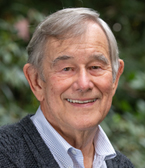In its Spring issue, Education Next takes note of the 50th anniversary of a 1965 publication issued by the U. S. Department of Labor entitled “The Negro Family.” The report, assembled under the direction of Daniel Patrick Moynihan, made the case that civil rights legislation needed to be only the first step toward emancipation of black Americans from the legacies of the past. The next step should address the fact that approximately 25 percent of black children were being raised in single-parent families.
Race, Poverty
The contemporary debate over racial classification has been dominated by fringe voices in American society. The right demands that history should be abrogated and public policy made colour-blind, whilst the left insists that all customs, languages, institutions and practices are racially tinged and that only aggressive, colour-conscious programmes can reverse the course of American history. These essays, however, recognize that racial classification is an issue that cuts too deep and poses too many questions to be resolved by slogans of either the right or the left.
Reprinted in Political Science Quarterly, Winter, 1991-92, pp. 617-38.
The essays in this book try to separate the truth about poverty, social dislocation, and changes in America family life from the myths that have become part of contemporary folklore.


